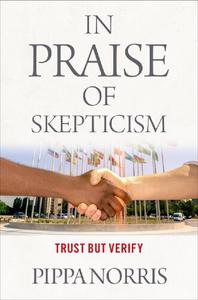
In Praise of Skepticism: Trust but Verify by Pippa Norris
English | September 9, 2022 | ISBN: 0197530109, 0197530117 | 318 pages | PDF | 13 MB
A culture of trust is usually claimed to have many public benefits-by lubricating markets, managing organizations, legitimating governments, and facilitating collective action. Any signs of its decline are, and should be, a matter of serious concern. Yet, In Praise of Skepticism recognizes that trust has two faces. Confidence in anti-vax theories has weakened herd immunity. Faith in Q-Anon conspiracy theories triggered insurrection. Disasters flow from gullible beliefs in fake Covid-19 cures, Madoff pyramid schemes, Russian claims of Ukrainian Nazis, and the Big Lie denying President Biden's legitimate election.
Trustworthiness involves an informal social contract by which principals authorize agents to act on their behalf in the expectation that they will fulfill their responsibilities with competency, integrity, and impartiality, despite conditions of risk and uncertainty. Skeptical judgments reflect reasonably accurate and informed predictions about agents' future actions based on their past performance and guardrails deterring dishonesty, mendacity, and corruption. We should trust but verify. Unfortunately, assessments are commonly flawed. Both cynical beliefs (underestimating performance) and credulous faith (over-estimating performance) involve erroneous judgements reflecting cultural biases, poor cognitive skills, and information echo chambers. These conclusions draw on new evidence from the European Values Survey/World Values Survey conducted among over 650,000 respondents in more than 100 societies over four decades.
In Praise of Skepticism warns that an excess of credulous trust poses serious and hitherto unrecognized risks in a world full of seductive demagogues playing on our insecurities, lying swindlers exploiting our greed, and silver-tongued conspiracy theorists manipulating our darkest fears.
Links are Interchangeable - No Password - Single Extraction


